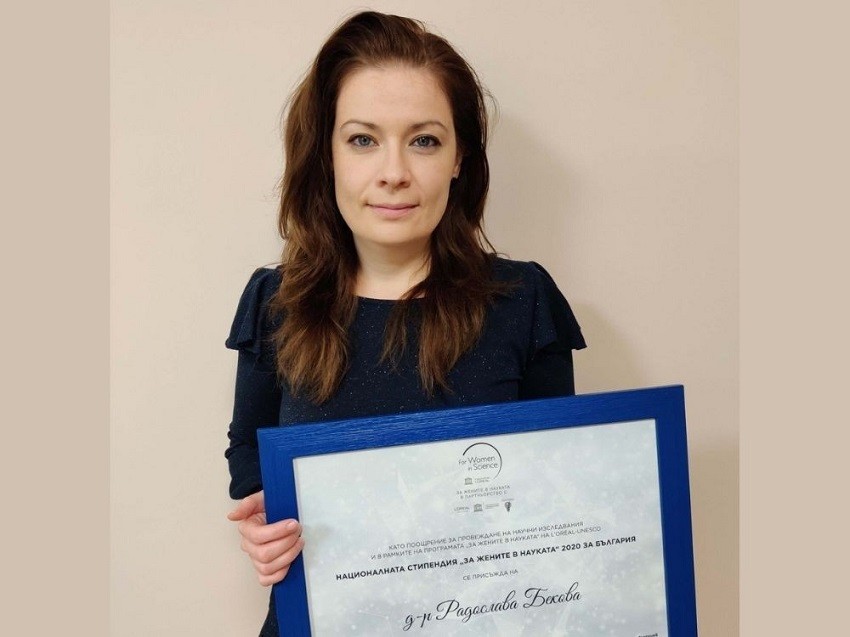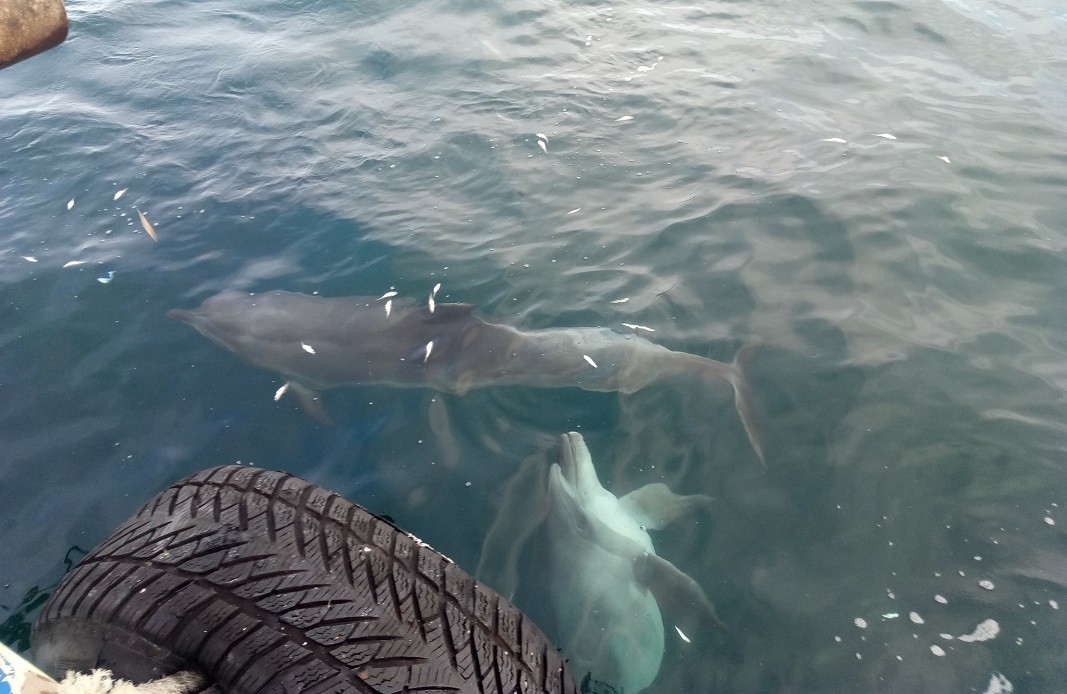Three young women will receive awards at a ceremony at the St. Kliment Ohridski University in Sofia today for excellence in natural sciences. For 12 years, the “For women in Science” programme has been promoting the scientific potential of women and supporting their dreams of changing the world through science.
One of the main aims of this UNESCO programme is to support women in science with EUR 5,000 national scholarships to develop their research activities in their countries. 33 scientists have received the award so far. One of them is Radoslava Bekova from the Bulgarian Academy for Sciences’ Institute for Oceanology for her project connected with the marine litter along the Black Sea coast.
“It is one of the most prestigious science awards in this country,” she says. “The scholarship came at a good point in my professional development and it helped me buy a certain kind of equipment I needed and take part in international conferences which is an expensive thing and Bulgarian scientists usually are barely able to afford the participation fees. This award has afforded me independence in my career development, it was something I very much wanted.”

Radoslava Bekova is holder of two more prizes for achievements in climate change, risks and natural resources, she has co-authored 23 scientific publications and has presented numerous scientific reports at national and international forums. And even though she is successful, the young scientist says that it is more difficult for women to develop in the field of science, that there is no equality yet, and that in her own field, for example, a man would be preferred to a woman because women are regarded as the weaker sex.
“Women are often mothers as well, and we have a great many personal things to take care of,” Radoslava Bekova says. “Maternity leave sets us back two years in our career development, and that is a very long time when it comes to science. There is a gender pay gap – of course, with men earning more, and I am not talking about salaries, I am talking about funding under different projects and research work.”
As to the scientific research work in the conservation of biological resources, their habitats and the ecological status assessment and evaluation of the marine and coastal environment, Radoslava Bekova says that after two years of Covid-19 pandemic, the monitoring of beaches and dunes has been reinstated, and that, unfortunately, littering there, most of all with plastics has increased.
Are scientists studying the pollution of the Black Sea as a result of the war in Ukraine?

“There has been no official monitoring of the consequences but it is inevitable,” Radoslava Bekova says. “Not in the least because of the increased mortality of dolphins though it cannot be said with any amount of certainty whether it is the result of the war or of some kind of pandemic that is connected with the rise in the average annual temperature of the Black Sea. Chemical tests are yet to be conducted to determine this because a war has a multitude of negative effects on the environment, be it air or sea. So, there are certain to be some kind of consequences.”

Interview by Mariela Dimitrova, Radio Varna, BNR
Compiled and edited by Diana Tsankova
We Bulgarians know that Bulgaria and Armenia have close relations of friendship and cooperation, built on the basis of centuries of historical and cultural ties between the two nations. There are many respected personalities from the Armenian diaspora..
The building of the Bulgarian Center in New England, USA, which also houses the Bulgarian School and the Bulgarian Church in Boston, hosts one of the two election commissions in the area. "Pre-voting applications for this election overall..
People with motor and visual disabilities in Bulgaria face numerous difficulties in moving around and in their daily lives. But apart from purely physical obstacles, there are also obstacles at the level of access to information and administrative..
The Professional Association of Robotics, Automation and Innovation s unites over 80 Bulgarian and international companies that have one global..
Konyovets village near Shumen is marking 160 years since the oldest stud farm in Bulgaria was set up. Celebrations are being organized on the farm on 1..

+359 2 9336 661
